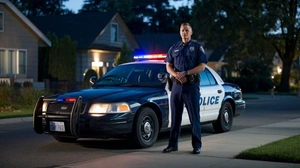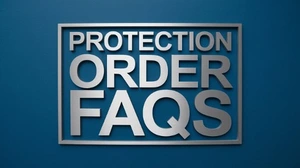Legal Advocacy
Chapter 50B Protective Order FAQs: Your Rights and Responsibilities
 If someone has taken out a Domestic Violence Protective Order (DVPO) against you in North Carolina under Chapter 50B, you may feel caught off guard. A 50B order can restrict your freedom of movement, bar you from your own home, or even affect your parenting time. These FAQs explain the key parts of a DVPO, including who can file, how the court decides to grant an domestic violence protection order, and what you must do if a judge imposes restrictions on you.
If someone has taken out a Domestic Violence Protective Order (DVPO) against you in North Carolina under Chapter 50B, you may feel caught off guard. A 50B order can restrict your freedom of movement, bar you from your own home, or even affect your parenting time. These FAQs explain the key parts of a DVPO, including who can file, how the court decides to grant an domestic violence protection order, and what you must do if a judge imposes restrictions on you.
Each question below focuses on real concerns defendants have about 50B orders. Whether you’re worried about an ex parte Order prohibiting all forms of contact, an upcoming hearing, or how the DVPO might affect your job, these answers can help you plan your next move. If you find yourself facing a DVPO on the Outer Banks, give Danny Glover at the Glover Law Firm a call: 252-299-5300.
A Chapter 50B DVPO in North Carolina is a civil order designed to protect someone who claims to be at risk of domestic violence. It can force you to stop all contact with the accuser and stay away from specific places like a home, workplace, or school. If you violate these conditions, you risk immediate arrest and possible additional criminal charges. Unlike a criminal case, a 50B order does not require proof beyond a reasonable doubt. Instead, the plaintiff needs to show more likely than not you committed or threatened domestic violence. Once granted, a DVPO can last up to one year, although the court can make it shorter or longer under certain conditions.
In North Carolina, a 50B order applies to cases where the plaintiff is or used to be intimately involved with you or is a family member or household member. Examples include spouses, ex-spouses, cohabitants, parents, children, or dating partners who may have parted ways. The plaintiff must claim you committed or threatened acts of domestic violence like assault on a female, harassment, or placed someone with whom you have a “domestic relationship” in fear of imminent harm. They do not need police involvement to file a civil complaint (a type of lawsuit). They go to the courthouse, fill out a form, and explain why they feel at risk. If a judge finds their account persuasive enough, a temporary ex parte order might be issued without your input.
An ex partedomestic violence protection order is a temporary measure that can be granted if the judge decides there’s an immediate danger or threat of harm to the plaintiff. The hearing for this kind of order can happen without notifying you, so it might be approved based on the plaintiff’s statements alone. This means you could be barred from your own home or told not to contact someone without ever having a chance to explain your side. However, an ex parte order usually lasts only until the full hearing, which typically occurs within 10 days. That full hearing is your chance to contest the allegations and prevent a long-term DVPO from being put in place.
If the order states you must stay away from the residence where the plaintiff lives—even if it’s your home—you do have to leave. Some orders let you return once with law enforcement to collect belongings, but you cannot live or stay there if the order forbids it. This scenario can be difficult if you share a lease or own the property. But the judge’s priority is to ensure the plaintiff is safe from future acts of domestic violence. Willfully violating a DVPO can lead to arrest. If you believe the prohibition is unfair or you have no place to go, you may be able ask the court (a District Court Judge in North Carolina) at the full 50B hearing to reconsider the arrangement. However, until the judge modifies any order, you must follow their directives as written.
After an ex parte order is granted, a full hearing is scheduled, generally within 10 days. This is your opportunity to challenge the plaintiff’s claims. You can present evidence, call witnesses, and testify yourself. The judge will decide if a longer DVPO is appropriate. If you do not show up, the court can extend the ex parte order by default for up to one year. Missing this hearing means you give up your chance to defend yourself. As such, it is wise to prepare thoroughly and attend. If the court date conflicts with your job or other obligations, you can ask for a continuance, but it is not guaranteed. We think it’s smart to immediately retain legal counsel if you’re accused of domestic violence. Call Glover Law Firm now 252-299-5300.
In North Carolina, a Domestic Violence Protective Order (DVPO) is a civil lawsuit, and the person who filed it (the plaintiff) can voluntarily dismiss the case unless there is a specific court-imposed limitation. The court does not have to formally “approve” a dismissal in the same way it would modify or extend an existing order. Instead, the plaintiff files a notice of dismissal with the clerk. Once the dismissal is documented, the DVPO is no longer in effect. Until that official paperwork is filed, the order remains enforceable.
In practice, local court procedures may prompt a hearing or a brief review to ensure everyone understands the dismissal, but the key is that the plaintiff retains the legal right to dismiss a DVPO action. If the plaintiff verbally says they plan to drop the order, you should wait to see the written dismissal filed in the court record before assuming it no longer applies. If you are unsure whether the dismissal is complete, you can check with the clerk’s office or consult a domestic violence lawyer to confirm.
North Carolina law and federal regulations prohibit you from possessing firearms if an active domestic violence protective order applies to you, depending on its terms. The judge can order you to surrender any firearms you own, along with any permits, to local law enforcement. This is a temporary surrender for as long as the DVPO is in effect. If the order expires or is dismissed, you can request that your firearms be returned unless there is another legal reason preventing it. If you ignore the surrender requirement, you could face additional charges and risk immediate arrest.
If you share a child with the plaintiff, the judge can include temporary custody or visitation provisions in the protective order. The goal is to prevent the child from being in harm’s way if the court believes there is a risk. You might receive supervised visitation or specific time blocks when you can see the child in a neutral setting. If you think these terms are unworkable or unfair, you can raise your concerns at the hearing. The judge has significant discretion to shape temporary child arrangements. If you have a separate custody case, the DVPO orders may impact that matter as well.
Yes. Before a DVPO expires, the plaintiff can file a motion to extend it for another year if they show “good cause.” They must convince the judge that they remain at risk or that nothing has changed to lessen their concern. You are entitled to a hearing to argue that the order should not continue. If the judge believes the plaintiff is still in danger, the DVPO can be extended in appropriate circumstances. This cycle can repeat each year, leading to a longer ongoing protective order if the court decides it is necessary. That is relatively rare on the Outer Banks.
You have a right to defend yourself by presenting evidence and testimony that contradict the accuser’s claims or shows they are misleading. This can include text messages, photos of your own injuries, or witnesses who saw what really happened. You can also highlight motivations the accuser might have for fabricating events, like a pending divorce or custody dispute. Each situation is unique, so a defense attorney can help you gather the right materials and question the plaintiff’s story under oath. The judge will make a final decision based on all the evidence. If the court rules that no domestic violence occurred or that the plaintiff’s claim is not supported, the DVPO will be denied or dismissed. It’s a good idea to have a domestic violence lawyer standing by your side in court to advocate for your best interests.
OBX Domestic Violence Lawyer: Glover Law Firm
 A Chapter 50B protective order and related DV criminal charges can significantly impact your life—affecting your living arrangements, child access, or even your right to own or possess firearms. While these orders are intended to keep people safe, you have the right to challenge allegations you believe are unfounded. If you are served with a DVPO, reading the order carefully and attending every scheduled hearing is important. Failing to appear or comply can lead to serious consequences.
A Chapter 50B protective order and related DV criminal charges can significantly impact your life—affecting your living arrangements, child access, or even your right to own or possess firearms. While these orders are intended to keep people safe, you have the right to challenge allegations you believe are unfounded. If you are served with a DVPO, reading the order carefully and attending every scheduled hearing is important. Failing to appear or comply can lead to serious consequences.
We think it’s wise to speak with a lawyer who understands North Carolina domestic violence laws and local court rules. A legal strategy can help you show the court your side of the story and work toward a fair outcome. Whether you’re facing an ex parte order or seeking changes to an existing DVPO on the Outer Banks, a thoughtful approach and clear evidence can make a difference as you navigate the process. Have questions about an OBX 50B Order? Call Danny Glover at the Glover Law Firm now: 252-299-5300.
 Glover Law Firm Home
Glover Law Firm Home










